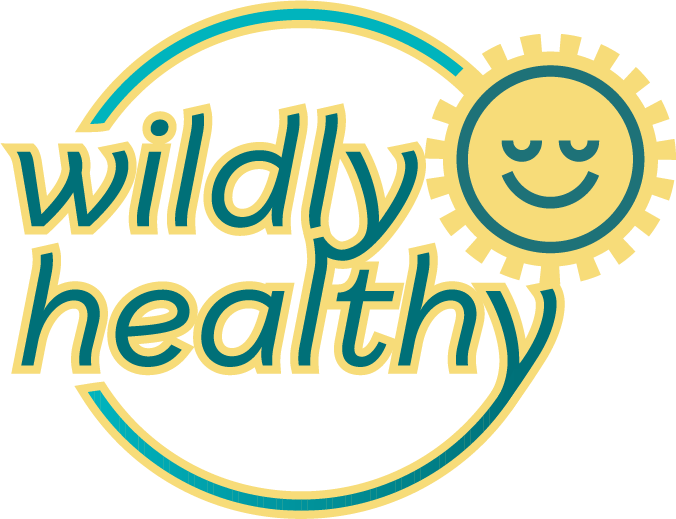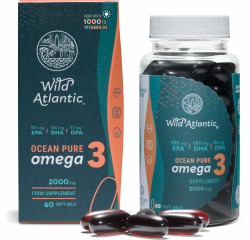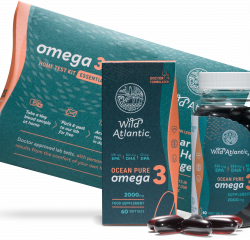A new pregnancy should hopefully be a very happy and joyful time. Expecting a new life is a wonderful experience. However, some young mums may have concerns about how successful their pregnancy is, and how healthy their baby will be. Of the many questions that young mums ask, “Am I taking the right prenatal vitamins?” would be near the top of the list.
When taking prenatal or pregnancy vitamins, which include Folate and other nutrients, you should always include pure, high-quality Omega-3 fish oil fatty acids, especially DHA, together with DPA and EPA, which are vital for a healthy pregnancy and the development of the foetal brain.
Following a healthy diet of freshly prepared real food, organic where possible, with plenty of variety, is the best start you can give to your baby.

While trying to conceive, and while pregnant some concerns that may arise are:
- Low birth weight
- Cognitively under-developed brain
- Poor eyesight
- Preterm birth ie. babies born before 37 weeks of pregnancy – a leading cause of disability or death in the first five years of life. (ref)
- Life-threatening eclampsia
- Lower IQ
- Allergies such as asthma, rhinitis and eczema are found in children whose mothers have low DPA blood levels. (ref)
- Disturbed sleep
- Autism and ADHD
Researchers have found that pregnant women with a low Omega-3 Index, are at highest risk for going into early labour, and having an underweight baby with lower infant immunity.
- An optimal Omega 3 Index was found to decrease preterm birth by 70%.
- Decreased very low birth weight by 85%
- Increase infant immunity
- Lower postpartum depression
There is now sufficient research and evidence to introduce this essential test. So much so that the hospital research foundation in Australia is introducing the Omega-3 Index test a standard procedure during the first trimester of pregnancy.
While you need several nutrients for a healthy pregnancy, studies have found that the above conditions may be associated with low Omega-3 blood levels.
When mothers are supplemented with Omega-3 fatty acids, the above risks have all been shown to lower substantially, and several benefits have been observed.
Good quality Omega-3s are beneficial for mom and baby, before conception, through pregnancy and breastfeeding.
These fats are called “essential” because your body cannot make them, and you must get them from food.
A better chance of conceiving
In an article in the Journal of Reproduction, it was reported that “After adjusting for age, obesity, race, previous pregnancy, vitamin D and prenatal and multivitamin use, women taking omega-3 supplements had 1.51 (95% CI 1.12, 2.04) times the probability of conceiving compared to women not taking omega-3s.” 2022
During pregnancy, DHA – docosahexaenoic acid is known to be especially important. More recently it has been discovered that DPA – docosapentaenoic acid (the missing Marine Omega-s) is also vital. DPA has now been found to be as high as DHA in breast milk, which underscores the crucial role these two fatty acids play in the development of the central nervous system.
The developing brain
DHA is the most prevalent fat in the brain. DHA is quoted as being 90% of total Omega-3 fats in the brain, and upwards of 40% of the total brain PUFAs. (ref)
We know babies need DHA for developing the brain and eyes. DHA plays a key role in the healthy creation of the central nervous system. Deficiencies in these essential fatty acids limit brain development in the foetus and early life. (ref)
DHA supports ongoing brain development through all three trimesters of pregnancy, with emphasis on the first and third trimesters due to the brain being formed in the first trimester, and growing the most in the third trimester.
The first trimester is 0-12 weeks, the second is 13-28 and the third is week 29-38 or term.
Omega-3 may help with the development of the baby’s hand-eye coordination. In a trial to assess the effect of taking Omega-3 fish oils while pregnant, those children whose mothers had taken the fish oil scored significantly higher in comprehension, vocabulary and hand-eye coordination. (ref)
Evidence suggests that DHA may actually raise IQ. When mothers supplement with Omega-3 during pregnancy, the child has a raised IQ by between 5-10 points and increases brain volume. (ref) (ref) (ref)
When the marine fatty acids, especially DHA, are in short supply during pregnancy, neurons in the foetal brain are less well developed and have fewer synapses. (ref)
Several studies have shown that children’s mood and attention spans have improved too. (ref)
Does increasing your Omega-3 lower the chances of Premature birth?
“Premature birth accounts for close to one million deaths annually. Premature babies are at higher risk of long-term conditions including visual impairment, developmental delay and learning difficulties”. – says the Cochrane report.
“‘The length of most pregnancies is between 38 and 42 weeks. Premature babies are those born before the 37th week. The earlier a baby is born, the greater the risk of death or poor health.”
The Cochrane team looked closely at long-chain omega-3 fats and their role in reducing the risk of premature births – particularly docosahexaenoic acid (DHA) and eicosapentaenoic acid (EPA) found in fatty fish and fish oil supplements.
In 70 randomised trials, they found that for pregnant women, increasing the daily intake of long-chain omega-3s:
- lowers the risk of having a premature baby (less than 37 weeks) by 11% (from 134 per 1000 to 119 per 1000 births)
- lowers the risk of having an early premature baby (less than 34 weeks) by 42% (from 46 per 1000 to 27 per 1000 births)
- reduces the risk of having a small baby (less than 2500g) by 10% (ref) (ref)
The growing foetus

We recommend eating two servings of oily fish per week. Salmon, sardines, mackerel and anchovies are high in Omega-3s. Some women are concerned about mercury in fish. However, up to two servings per week have been found to be safe. As well as that, the consumption of omega-3 fatty acids from fish has been shown to protect against the toxic effects of mercury even during pregnancy.
If you do not eat fish, you are at greater risk of being low in these essential nutrients. Therefore it makes sense to supplement your diet with Omega-3 fish oils.  The Wild Atlantic Health Pure Omega-3 has been independently certified as the lowest toxicity value (totox) attainable in fish oil supplements.
The Wild Atlantic Health Pure Omega-3 has been independently certified as the lowest toxicity value (totox) attainable in fish oil supplements.

While vegans rely on vegetable sources for Omega-3, the amount of Omega-3 in fish is higher than in nuts and seeds by 10-100 times. The conversion from ALA to the vegetarian source requires well-functioning enzymes to convert to EPA and is an extremely low conversion. DHA is not attainable from vegetarian sources.
Lowering the probability of ADHD and Autism
ADHD and Autism have steadily been on the increase. Omega-3, together with antioxidants during pregnancy, lowers neuroinflammation, reducing the risk of neurological incidences of autism, ADHD and cerebral palsy. This information is powerful for expectant mothers.
Premature babies that were given omega-3 and omega-6 supplements were less likely to develop symptoms of autism spectrum disorder compared to preterm babies given a placebo. (ref) (ref)
Many fish, such as salmon, are high in omega-3 and low in mercury.
We recommend you take a pure, good-quality fish oil supplement, and begin at least three months before you fall pregnant. Choose one that has high-dose DHA and includes DPA and EPA fatty acids.
The amount of DHA needed to raise your DHA level into the desirable range is different for everybody. Many factors – age, weight, diet, and genetics – can all influence the body’s response to DHA intake.
Your growing child needs EPA, DHA and DPA.
Do you have the correct amount of Omega-3?
To put your mind at rest and know your levels, you can do an easy, pain-free, finger prick test at home. No need to go to the doctor for a blood draw, simply order an Omega-3 test online. Calculate how much Omega-3 you need to achieve an optimal Index using our Omega-3 Index Calculator.
Wild Atlantic Health has two on offer:
An Essential Omega Index test, which reports on the percentage of the total EPA and DHA in your blood. An Index of above 8% is desirable.
The Advanced Omega-3 test gives you a complete breakdown of all 24 fatty acids in your blood including the percentage of DHA, DPA and EPA.
We recommend the Advanced test during pregnancy to know your percentage of DHA especially, as well as DPA and EPA in your blood, as well as a full list of 24 fatty acids, including trans fats, and ratios of Omega 6 to 3. (This report is a great summary of the good vs the bad)
A pregnancy DHA level of greater than 5% helps provide your baby with a good amount of these important fats.
Remember to sign up to receive more great content and special offers.
Other articles about Omega-3

Why the wisdom of Fish Friday is good for your Omega-3 levels and your health.
We recently celebrated ‘Global Omega-3 Day’. It served as a reminder for us to sear up some salmon, eat those anchovies and take copious amounts

Why Omega-3s are crucial for pregnant moms
A new pregnancy should hopefully be a very happy and joyful time. Expecting a new life is a wonderful experience. However, some young mums may

Who Needs Omega 3 the Most?
Who Needs Omega-3 the Most? Omega-3 fatty acids are essential for maintaining good health. They play a crucial role in brain function, inflammation reduction, and
Lorem ipsum dolor sit amet, consectetur adipiscing elit. Ut elit tellus, luctus nec ullamcorper mattis, pulvinar dapibus leo.





























